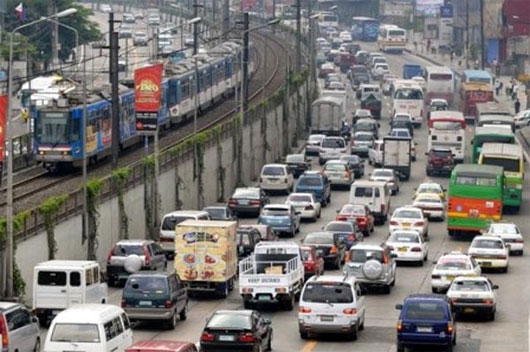The world will be hotter, drier, more hungry
Predicting the world in the next century: hotter, drier, more hungry and the chance of turning off air conditioning is impossible. This is the latest conclusion of the United Nations to push governments to recognize the 'increasingly clear threat ' caused by climate change before the opportunities for dealing are completely closed.
The conclusion of the United Nations is based on a report of the Intergovernmental Panel on Climate Change (IPCC), which was announced March 31 in Yokohama, Japan. This is the second part of the climate change assessment provided by IPCC, a document that is published every six years with the participation of more than 1,000 scientists. The report concludes that taking steps to cut CO2 emissions, the gas that is thought to be the cause of temperature rise, could provide more time to adapt to global warming. bridge. Without emission control, the impact of climate change will become more serious and cannot be changed.

The Philippine capital Manila is expected to be heavily affected by climate change
The report said that cutting emissions will now "increase the time for adapting to a certain level of climate change." If delaying harm reduction actions can reduce the opportunity to choose future adaptation measures. '
Kelly Levin, an energy and climate expert at the US-based World Resources Institute (WRI), said in the report 'we have caused a certain increase in heat. In the next few decades, our lives will be closely linked to climate change, which is changing the world. The choices we make today will affect what we face in the rest of this century. '
Therefore, 'adaptation is at the center of climate change research , ' Levin said. Adjustments such as sea dyke construction, water conservation and design of cities suitable for warmer climates all have limitations. 'The report proposes a few options for dealing with climate change that need to be concentrated or too expensive.'
The IPCC said that increasing the amount of CO2 and other gases made the average temperature rise 0.6 degrees C since 1950. The first part of the report was released in September last year, concluding that in the scenario At best, the average increase is still at 1.6 degrees Celsius, in the worst case it will be 3.7 degrees Celsius.
The idea that carbon emissions are changing the climate of the Earth is a controversial political topic, but this is widely acknowledged by the majority of scientists. If the emissions and concentrations of carbon dioxide in the atmosphere continue to rise, the impact will be more serious and difficult to bring to the original state.
The summary of the full report (with more than 1,000 pages) will be the leading tool for national legislators. The report presents unexpected impacts on continental regions and other natural factors such as aquatic life, agricultural risks and flooding. The report goes into specific details that show legislators what hazards their country will be affected by, as well as which modifications and tools can prevent effective change.
'The real highlight of the report is that climate change has a lot of influence, the level of influence is very wide and around the world' , expert Heather McGray studies on adaptation at WRI Institute for know.
In most cases, climate change will worsen existing problems, such as the availability of clean water resources in sub-Saharan Africa. Scholars conclude that glaciers will divide ' almost the whole world' , affecting flows.
Animals have begun to change their habits to react to global warming and the main crops have been really affected. In cold climates, it is possible to see an increase in crop production due to longer growing seasons and a warmer climate, but negative impacts are many times greater than positive, the report said. .
'The report concludes the impact of climate change is widespread and has caused consequences,' McGray said. The impact will not be the same for everyone and normally the poor will be more vulnerable. 'Climate-related hazards affect the lives of the poor by directly affecting their livelihoods, reducing crop yields or destroying houses and indirect impacts such as increasing food prices and food insecurity ' . For the poor, the impact 'will be disastrous' unless emissions are reduced.
- Giant tortoise at the risk of extinction
- Close up of hungry harpooning to rejuvenate young antelope
- Asia with a hungry stomach and polluted cities
- In the next 3 months, it is hotter every year
- Why are people eating so much still hungry?
- Shopping when hungry is not good for health
- Video: The culprit causes humanity to still suffer from hunger
- Hungry men 'crave' fat women
- Video: Hungry crows helpless before the dodge's attack
- Amazingly, the monopoly elephant wins 14 hungry lions
- Suicides in the US and Mexico increased because of the hotter weather
- The battle between wild boar and lion through photos
 Is the magnetic North Pole shift dangerous to humanity?
Is the magnetic North Pole shift dangerous to humanity? Washington legalizes the recycling of human bodies into fertilizer
Washington legalizes the recycling of human bodies into fertilizer Lightning stone - the mysterious guest
Lightning stone - the mysterious guest Stunned by the mysterious sunset, strange appearance
Stunned by the mysterious sunset, strange appearance